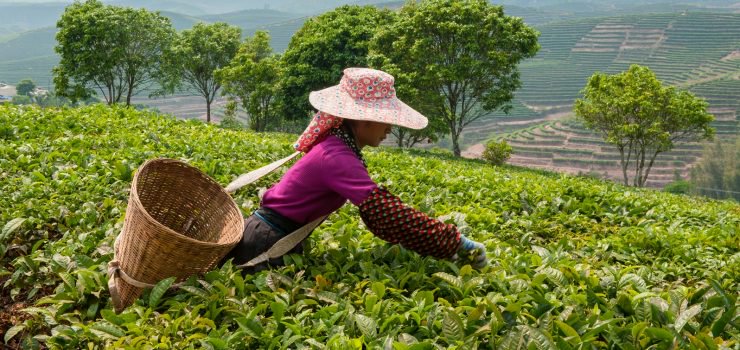
Tea For Sale! Some history facts!
[vc_row][vc_column][vc_column_text]For many pioneer tea drinkers, their first experience of tea would have been a ready-made brew served in coffee shops, which generally entertained an all-made clientele. The tea wouldn’t have been particularly fresh , or even pleasant, as barrels of tea served through the day would be prepared in he morning so that excise men could levy tax on them. And, given its fabulous price, tea was often adulterated or bulked out with leaves, ash, used tea and even sheep dung.
As tea became more popular, women in particular, wanted tea at home. Tom’s Coffee House, opened in 1706 by Thomas Twining on the Strand in London, was firs coffee house where respectable women could actually go in to buy tea themselves.
“Tea is better than wine for it leadeth not to intoxication, neither does it cause a man to say foolish things and repent there of in his sober moments. It is better than water for it does not carry disease; neither does it act like poison as water does when it contains foul and rotten matter.”
This ancient saying from China gained widespread acceptance in Europe during the course of the eighteenth century. Tea displaced beer in Britain and in the Netherlands. In the fight against alcoholism, the temperance movement of the nineteenth century recommended tea as an alternative. Evidence based on contemporary accounts suggests that a tradesman’s family in 1749 in Britain spent three shillings a week for bread and four shillings on tea and sugar. But tea was still too expensive to become common man’s drink. It was only in the nineteenth century that tea became a common beverage for British households.
The Tea Trade
In 1839 the Indian state of Assam’s first export of tea amounted to just 155 kg. Today the world production of tea is nearly 3 million tonnes. The largest producer are China, India and Sri Lanka.
Kenya, Taiwan and Indonesia are also important in the world of tea production. The world tea trade revolves around weekly auctions in Calcutta, Mombasa, Colombo, and Jakarta. Tea brokers list samples to buyers. Buyers grade the tea on offer, and at the auction bid for those they want. In this trade dealers and tea merchant buy from individual estate , basically gambling that the quality and price they can get will allow them to sell the tea on when prices rise.[/vc_column_text][/vc_column][/vc_row][vc_row][vc_column][dt_fancy_image image_id=”2664″ css=”.vc_custom_1536668675887{background-position: center !important;background-repeat: no-repeat !important;background-size: cover !important;}”][/vc_column][/vc_row]
